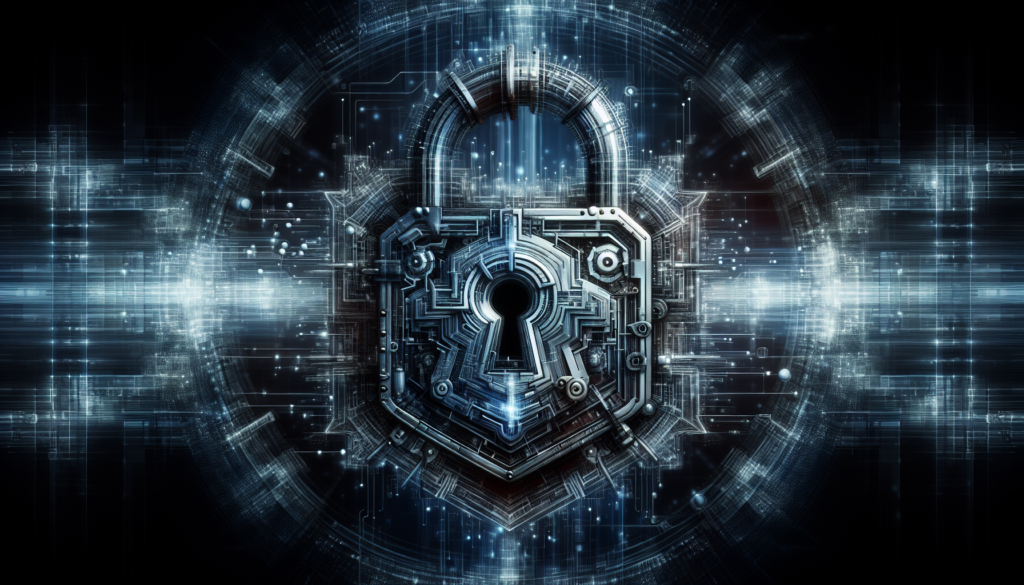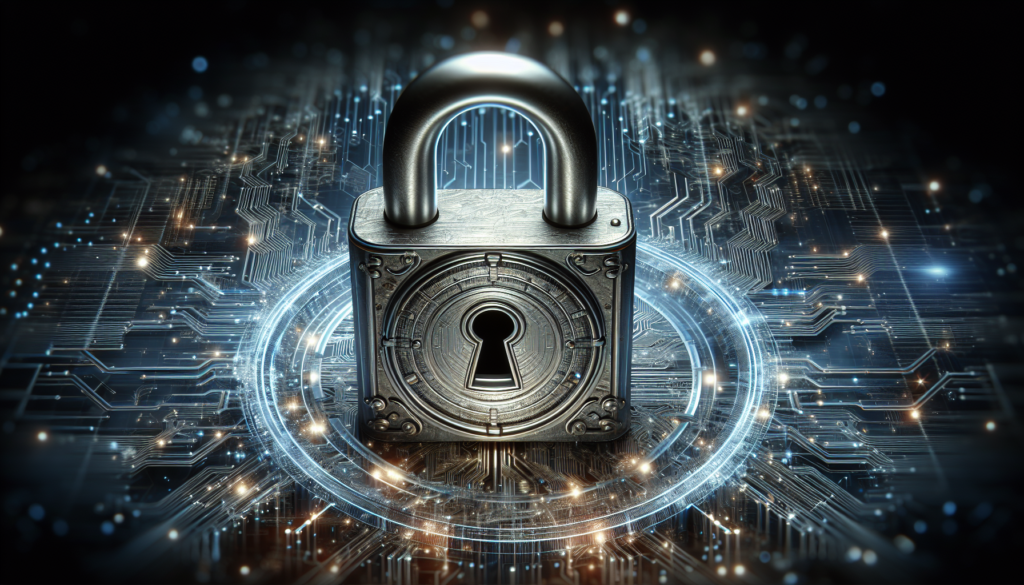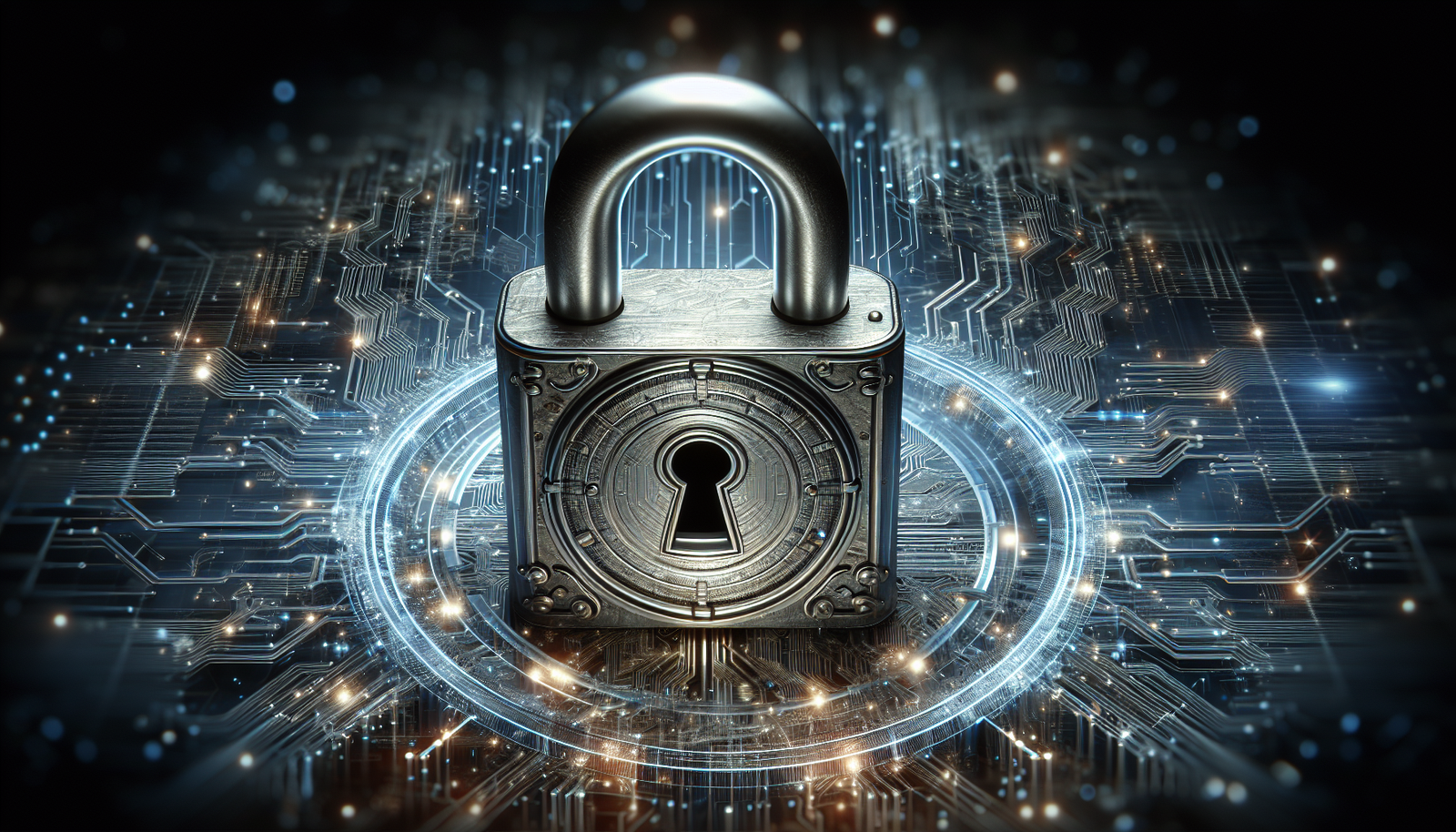Taking control of your online security starts with the decisions you make, one of which is the creation of strong passwords.
Imagine a password as a digital shield, guarding you against unauthorized access that could lead to identity theft, financial fraud, or misuse of your services.
A robust password isn’t just a haphazard set of characters; rather, it embraces complexity and unpredictability to fend off would-be attackers.
It plays a key role in defending against evolving cyber threats, ensuring your private information stays just that – private.
Moreover, such passwords often form the backbone of security policies in many organizations, directly impacting their overall security posture.
Beyond creating resilient passwords, adopting best practices, such as changing them frequently and not reusing them, contributes to your digital safety.
Hence, a powerful password is your first line of defense in the increasingly perilous landscape of cyber threats.

Protection Against Unauthorized Access
Hacking attempts, data breaches, and other forms of unauthorized access are on a significant rise, making strong passwords an essential first line of defense for everyone.
A weak password is like an open door for cybercriminals who aim to gain unauthorized access to your data.
When you opt for strong passwords, you strengthen your accounts’ defenses against these attacks by making it hard for hackers to break in.
Role of strong passwords in preventing unauthorized access
Strong passwords prevent unauthorized access by adding a layer of complexity that cannot be easily bypassed by fraudsters.
A password that contains a combination of alphabets, numbers, and special characters makes it steeply troublesome for any hacker to crack.
This is particularly true when the password doesn’t have any connection to your personal information, which could be guessed or hacked.
Relation between strong passwords and identity theft
Identity theft is a critical concern in the digital world.
Cybercriminals often aid their misdeeds by stealing your personal information, and having access to your passwords enables them to masquerade as you.
Strong passwords make it much harder for thieves to steal your identity, as the complexity involved in guessing or cracking such passwords is significantly high.
Impact on financial fraud and unauthorized use of services
If unauthorized users gain access to your financial information, such as your banking or credit card details, they can commit fraud, leading to substantial monetary losses.
Similarly, if they get hold of your service accounts, for example, your streaming or shopping accounts, they can misuse them.
Strong passwords prevent all this by providing a robust barrier that unauthorized users find exceptionally challenging to conquer.
Complexity and Unpredictability
The more complex and unpredictable your password, the harder it is for anyone to crack.
It’s advisable to make your passwords complex and unique, and ensure you don’t use personal information or common phrases that can be easily guessed.
Characteristics of a strong password
A strong password typically consists of at least eight characters, including uppercase and lowercase letters, numbers, and special symbols.
It should neither include any personal information nor common words or phrases.
Randomness adds to the strength of a password since it increases its unpredictability.
How complexity aids in password strength
A complex password is not easily decipherable.
Each additional character you add, especially if it’s a special character, increases the complexity exponentially, thereby increasing the password’s strength as well.
It makes it incredibly tough for hackers to succeed in their password cracking attempts through brute force or dictionary attacks.
Understanding the role of unpredictability in password creation
When your password is unpredictable, it’s more secure.
Hackers often use personal information in the hope that you have used such details in your password.
Making your password random and not based on your personal information ensures that it is highly unpredictable and tough to crack.

Defense Against Common Attacks
In addition to providing a shield against unauthorized access, strong passwords also help counter common cybersecurity attacks.
Be it phishing, keylogging, or social engineering attacks, robust passwords mark a strong defense line.
Strong passwords as a defense against phishing
Phishing attacks trick you into revealing your passwords.
When you have a strong password, despite falling for such a trick, it will remain hard for anyone to use your password, especially when combined with multi-factor authentication methods.
Protection against keylogging
Keyloggers record the keys struck on a keyboard to gain your passwords.
If your password comprises a complex combination of characters and symbols that doesn’t make any sensible word, even when they succeed in recording it, understanding or remembering it for misuse becomes difficult.
Countermeasures to social engineering attacks
Social engineering attacks manipulate you into giving away your sensitive information like passwords.
Having strong passwords, changing them frequently, and not using the same password across different platforms act as effective countermeasures to such manipulation attempts.
Ensuring Privacy and Confidentiality
We share a lot of our sensitive and personal information online with the expectation that it will remain confidential.
Strong passwords play a vital role in ensuring that privacy and confidentiality remain unbreached.
Importance of strong passwords for personal privacy
Strong passwords keep your information safe by denying unauthorized access to your accounts.
They safeguard your personal data – be it your pictures, personal messages, or other sensitive data, ensuring that your privacy is not violated.
Significance of password strength for sensitive information
More often than not, our accounts contain a wealth of sensitive information. If unauthorized users gain access, your personal, financial, and other sensitive details are at risk.
The strength of your password significantly determines the safety of such sensitive information.
The role of password in ensuring confidentiality in emails, banking services, and social media platforms
Emails often contain crucial information; banking services have your financial details, and social media platforms your personal data.
Unauthorized access to any of these could lead to severe consequences. Therefore, strong passwords are imperative to maintain the confidentiality of these platforms.

Compliance with Security Policies
In the organizational context, strong passwords form a part of mandatory security policies. They play a vital role in protecting sensitive enterprise data and IT infrastructure.
Strong passwords as part of mandatory security policies
To protect company data from various threats, organizations often implement strict security policies, which may include the mandatory use of strong, unique passwords for all company accounts.
The role of password strength in compliance
Password strength plays a significant role in compliance with these policies.
Strong passwords ensure secure data access and transfer, reducing the possibility of successful cyber attacks and data theft.
Impact of strong passwords on company data and IT infrastructure
Strong passwords protect company data and IT infrastructure from unauthorized access and breaches.
They contribute to the integrity and confidentiality of data, thus enhancing overall organizational security.
Impact on Overall Security Posture
The strength of your passwords considerably impacts your overall security posture. Negligence in this aspect could severely compromise your security, making you an easy target for hackers.
How password strength contributes to security posture
Password strength forms the foundation of any robust security posture.
The stronger the password, the stronger is your security posture. A complex, unique password is much harder to break into, thereby reducing the risk of security breaches.
Weak passwords as the weakest link in the security chain
No matter how secure your individual systems or platforms are, if your password is weak, it becomes the weakest link in your security chain.
Hackers often exploit this weakness, leading to potential security compromises.
Impact of weak passwords on cyber security
Weak passwords pose serious risks to cybersecurity.
They open opportunities for hackers to launch successful attacks that can lead to data theft, financial fraud, unauthorized account use, and other serious violations, severely compromising cybersecurity.

Best Practices in Password Management
Beyond creating strong passwords, managing them effectively is equally significant. This involves several best practices like avoiding password reuse, changing them regularly, and using password managers.
Password reuse and its risks
Reusing passwords across multiple accounts increases your vulnerability. If one account gets compromised, all others with the same password are at risk. Therefore, it’s crucial to have unique passwords for different accounts.
Importance of changing passwords regularly
Changing passwords regularly adds another layer of security. Even if someone manages to crack your password, they wouldn’t be able to misuse it for long, as you would have changed it by then.
The role of password managers in secure password storage and generation
Remembering multiple complex, unique passwords can be a challenge. Password managers manage that for you. They not only securely store your passwords but can also generate strong passwords as needed.
Strength and Length of Passwords
An ideal approach to creating a strong password is to focus on both its strength and length. The longer and more complex your password, the harder it is for hackers to crack.
Correlation between password strength and length
A lengthy password is typically stronger because it increases the number of possible combinations that hackers need to try when launching a brute-force attack.
A longer password with a combination of characters, numbers, and symbols is significantly more secure than a shorter one.
How long passwords improve security
Long passwords enhance security as they take a longer time to crack.
Each additional character you append to your password exponentially increases its strength, thereby increasing your account security.
Why short passwords are weak and easily hackable
Short passwords are easier for hackers to break. They can quickly run through all potential combinations in a brute force attack, hence posing significant security risks.

Raise Awareness About The Importance Of Strong Passwords
The lack of public awareness about strong passwords contributes significantly to successful hacking attempts.
As more details of our lives transition into the digital sphere, it’s vital to raise awareness about the necessity of strong passwords.
The need for public awareness about strong passwords
Public awareness is crucial because most often, weak passwords stem from a lack of understanding about their potential risks.
Through public awareness programs, we can educate users about the importance of strong passwords, how to create them, and how to manage them.
Effective ways to raise public awareness
Regularly conducting workshops, seminars, online courses can effectively raise public awareness. Real-life examples and case studies can emphasize the critical need for strong passwords.
Role of media and educational institutes in promoting strong password use
Media, given its widespread reach, can play a pivotal role in this awareness drive. Similarly, educational institutions can incorporate it into their curriculum, influencing a younger audience to adopt safe practices early on.
Case Studies Showing The Consequences Of Weak Passwords
Several case studies highlight the catastrophic consequences weak passwords can lead to. These serve as eye-openers, emphasizing the importance of strong passwords.
Analyzing incidents involving weak passwords
Analyzing incidents where weak passwords led to breaches can help users understand the real-world implications better.
It can be a lesson for users who consider password strength not critical for security.
Lesson learned from breaches due to weak passwords
Breaches due to weak passwords teach us the importance of strong passwords, best practices to follow while creating them, and the severe consequences of ignoring them.
How case studies can help promote the use of strong passwords
Case studies help in drawing attention to the gravity of the situation.
Going through such case studies reinforces the need for strong passwords, encouraging users to make their passwords stronger.
To conclude, the importance of strong passwords cannot be overstated.
Passwords are not merely a means for you to access your accounts; they are a vital part of your security posture.
Make sure to create complex and unpredictable passwords for each of your accounts and manage them effectively.
Awareness is vital in this regard. Understanding why we need to do what we are advised to do can make all the difference in the world.
Therefore, remain aware, stay updated, and take the necessary precautions. Your digital security is in your hands, quite literally.

